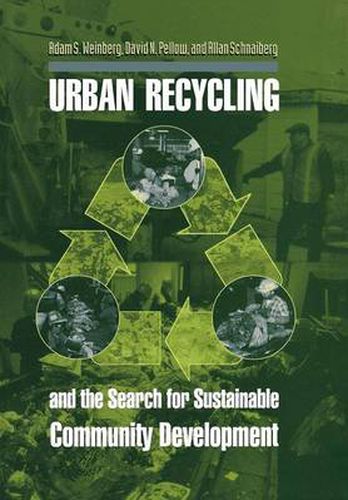Readings Newsletter
Become a Readings Member to make your shopping experience even easier.
Sign in or sign up for free!
You’re not far away from qualifying for FREE standard shipping within Australia
You’ve qualified for FREE standard shipping within Australia
The cart is loading…






More Americans recycle than vote. And most do so to improve their communities and the environment. But do recycling programs advance social, economic, and environmental goals? To answer this, three sociologists with expertise in urban and environmental planning have conducted the first major study of urban recycling. They compare four types of programs in the Chicago metropolitan area: a community-based drop-off center, a municipal curbside program, a recycling industrial park, and a linkage program. Their conclusion, admirably elaborated, is that recycling can realize sustainable community development, but that current programs achieve few benefits for the communities in which they are located. The authors discover that the history of recycling mirrors many other urban reforms. What began in the 1960s as a sustainable community enterprise has become a commodity-based, profit-driven industry. Large private firms, using public dollars, have chased out smaller nonprofit and family-owned efforts. Perhaps most troubling is that this process was not born of economic necessity. Rather, as the authors show, socially oriented programs are actually more viable than profit-focused systems. This finding raises unsettling questions about the prospects for any sort of sustainable local development in the globalizing economy. Based on a decade of research, this is the first book to fully explore the range of impacts that recycling generates in our communities. It presents recycling as a tantalizing case study of the promises and pitfalls of community development. It also serves as a rich account of how the state and private interests linked to the global economy alter the terrain of local neighborhoods.
$9.00 standard shipping within Australia
FREE standard shipping within Australia for orders over $100.00
Express & International shipping calculated at checkout
More Americans recycle than vote. And most do so to improve their communities and the environment. But do recycling programs advance social, economic, and environmental goals? To answer this, three sociologists with expertise in urban and environmental planning have conducted the first major study of urban recycling. They compare four types of programs in the Chicago metropolitan area: a community-based drop-off center, a municipal curbside program, a recycling industrial park, and a linkage program. Their conclusion, admirably elaborated, is that recycling can realize sustainable community development, but that current programs achieve few benefits for the communities in which they are located. The authors discover that the history of recycling mirrors many other urban reforms. What began in the 1960s as a sustainable community enterprise has become a commodity-based, profit-driven industry. Large private firms, using public dollars, have chased out smaller nonprofit and family-owned efforts. Perhaps most troubling is that this process was not born of economic necessity. Rather, as the authors show, socially oriented programs are actually more viable than profit-focused systems. This finding raises unsettling questions about the prospects for any sort of sustainable local development in the globalizing economy. Based on a decade of research, this is the first book to fully explore the range of impacts that recycling generates in our communities. It presents recycling as a tantalizing case study of the promises and pitfalls of community development. It also serves as a rich account of how the state and private interests linked to the global economy alter the terrain of local neighborhoods.